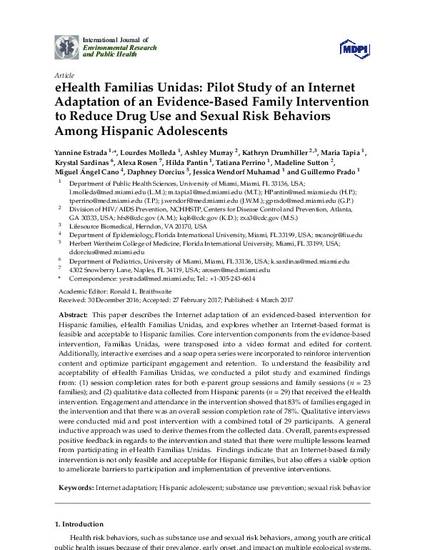
This paper describes the Internet adaptation of an evidenced-based intervention for Hispanic families, eHealth Familias Unidas, and explores whether an Internet-based format is feasible and acceptable to Hispanic families. Core intervention components from the evidence-based intervention, Familias Unidas, were transposed into a video format and edited for content. Additionally, interactive exercises and a soap opera series were incorporated to reinforce intervention content and optimize participant engagement and retention. To understand the feasibility and acceptability of eHealth Familias Unidas, we conducted a pilot study and examined findings from: (1) session completion rates for both e-parent group sessions and family sessions (n = 23 families); and (2) qualitative data collected from Hispanic parents (n = 29) that received the eHealth intervention. Engagement and attendance in the intervention showed that 83% of families engaged in the intervention and that there was an overall session completion rate of 78%. Qualitative interviews were conducted mid and post intervention with a combined total of 29 participants. A general inductive approach was used to derive themes from the collected data. Overall, parents expressed positive feedback in regards to the intervention and stated that there were multiple lessons learned from participating in eHealth Familias Unidas. Findings indicate that an Internet-based family intervention is not only feasible and acceptable for Hispanic families, but also offers a viable option to ameliorate barriers to participation and implementation of preventive interventions.
Available at: http://works.bepress.com/lourdes-rojas/10/
